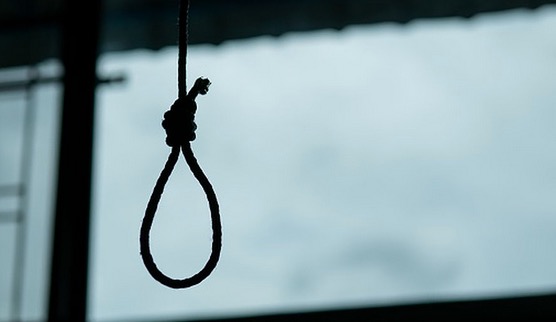Iran Human Rights (IHRNGO) – The death sentences against Reza Rasayi and Mojahed Kourkour, two “Woman, Life, Freedom” protesters, have been reportedly upheld by the Supreme Court. At the same time, at least three other protesters also remain at risk.
Iran Human Rights once again warns of the exponential rise in executions in Iran and calls on the international community to do everything in their power to stop the execution of protesters including Reza Rasayi and Mojahed Kourkour. At least seven protesters have been executed in 2023.
IHRNGO Director, Mahmood Amiry-Moghaddam said: “Like all protester cases, Reza Rasayi and Mojahed Kourkour’s death sentences which were based on torture-tainted forced confessions and without due process and fair trial rights, have no legal basis. The sole purpose of these sentences are to intimidate people and the only way to stop them is to raise their political cost for the Islamic Republic through mass campaigns and international pressure.”
In recent days, relatives of protesters Mojahed Kourkour and Reza Rasayi have been informed of the confirmation of their death penalty sentences by the Supreme Court.
Reza (Gholamreza) Rasayi is a 34-year-old Kurdish protester of the Yarsani faith who was arrested in relation to the death of IRGC member Nader Beirami at a ceremony held for Yarsani leader, Seyed Khalil Alinejad, which people used as an opportunity to protest, holding “Woman, Life, Freedom” signs. Authorities falsely claimed the gathering which they violently crushed, was unrelated to protests.
Reza was the first defendant in a group trial of 11 defendants for charges of “participating in the murder of Nader Beirami with a cold weapon, participating in intentional bodily harm to the aforementioned with a knife and participating in disruption of public order by creating conflict, controversy and uproar” at Branch 2 of the Kermanshah province Criminal Court. In court documents obtained by IHRNGO, Reza denies the charges but after “investigations” he confesses to stabbing the officer. His co-defendants in the case were compelled to testify against Reza and were subsequently released or faced lighter sentences. One defendant later states that he never saw Reza stab the victim and his testimony was made “out of fear.” Reza did not testify against anyone else himself and denied the charges in later investigations and in court, stating clearly that his confessions had been extracted under torture. All other defendants also later retracted their testimonies which had been made “under torture.” The court also dismissed two expert testimonies in Reza’s favour including that of the Kermanshah Forensic Medical Examiner whose testimony meant the fatal blow could not have been committed by Reza.
In the judgement, the testimonies of torture were dismissed and despite a lack of evidence, the judge relied on elme qazi (knowledge of the judge- see page 41 of this report) to sentence him to qisas (retribution-in-kind) for murder on 7 October 2023. The IRGC officer’s family, who are the plaintiffs in the case, requested qisas, Reza’s execution.
Reza’s family were informed that his sentence had been upheld by Branch 17 of the Supreme Court on 24 December 2023.
Mojahed Kourkour (Abbas Kourkouri) is a Bakhtiari protester arrested on 20 December 2022 after being shot in the leg. He was denied medical treatment beyond the removal of the bullet and forced to confess to killing 10-year-old Kian Pirfalak who was killed by security forces in Izeh on 17 November while injured and after being subjected to torture. His forced confessions were aired prior to any legal proceedings. Multiple witnesses have testified that Mojahed Kourkour was not at the protest in Izeh that day. Mojahed was indicted for charges of “moharebeh (enmity against god) through drawing a weapon with the intention to kill people and create fear, efsad-fil-arz (corruption on earth) committed through firing a war weapon, disrupting public order, causing harm to physical integrity of seven people including Kian Pirfalak, causing major damage to public and private property, forming a baghy group and its membership through armed rebellion against the government (baghy/armed rebellion)” at the Revolutionary Court.
His trial took place on 19 March 2023 and he was sentenced to death by the Ahvaz Revolutionary Court on 7 April 2023. He was denied the right to be represented by his own lawyer at trial. On 24 December 2023, his family were informed by the Ahvaz Revolutionary Court that his sentence had been upheld by Branch 39 of the Supreme Court without being shown any document evidence of the verdict. They were told his case had been sent back to Izeh and his lawyer could appeal the decision. It is important to note that filing an appeal will not halt the execution according to Iran’s laws.
Mojahed Kourkour has also been indicted for murder charges by the Criminal Court. If convicted, he will be sentenced to qisas (retribution-in-kind) and the families of the seven named individuals in the case will have to decide between qisas (hanging), diya (blood money).
Mohammad Ghobadlu, Manouchehr Mehman Navaz and Mansoud Dahmardeh who were all arrested in relation to the “Woman, Life, Freedom” nationwide protests, have also received death sentences and are at risk of execution.
 Shabtabnews In this dark night, I have lost my way – Arise from a corner, oh you the star of guidance.
Shabtabnews In this dark night, I have lost my way – Arise from a corner, oh you the star of guidance.



